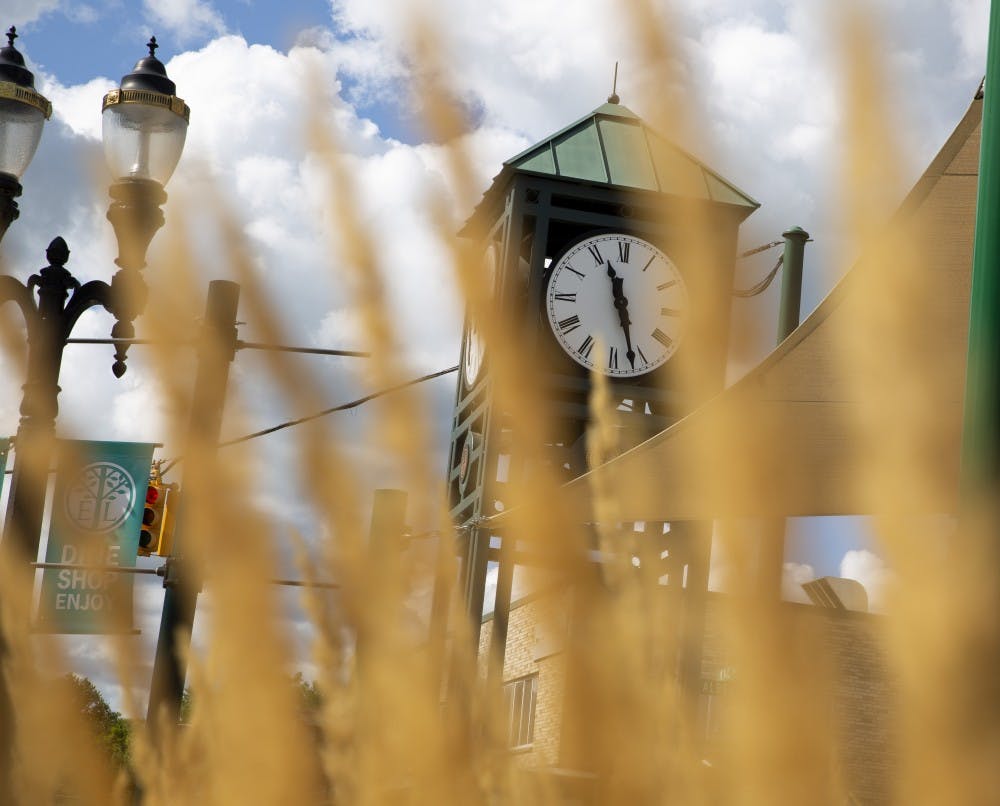East Lansing City Council held their two rounds of interviews this week, inviting 13 candidates to speak about their plans for the city moving forward.
At the July 29 public meeting, council members engaged in an open discussion landing on eight questions to ask their selected interviewees ranging from topics about their background to the most pressing concerns in East Lansing, economic development and issues of equity and inclusion.
In addressing the pressing challenges currently facing the city, each interviewee seemed to address concerns in the national public health crisis with COVID-19 and local concerns with the return of Michigan State students to campus in the coming weeks. Many took the time to address issues of policing and racial injustices, as well as budgetary and economic concerns, especially regarding the continuous development of high-rise student housing in the downtown area.
These high-rise student housing units posed not only economic concerns in the uncertainty of students choosing to return to campus, but many applicants cited their impact on the state of affordable housing options in East Lansing.
Many East Lansing residents are unemployed and with the expiration of Gov. Gretchen Whitmer’s renter’s forgiveness mandate, concerns were addressed that the city may see a spike in evictions in the coming months.
Adam DeLay, one of the candidates interviewed Friday morning, stated these concerns are among his top three priorities. He spoke on the role of the Housing Commission citing a history of housing discrimination in East Lansing. With East Lansing being perceived as a city that is difficult to afford, he said these apartments that are built for the purpose of “extorting money from people’s parents” are simply not a feasible option for people.
This echoed a point made on Thursday evening by candidate Janeile Cannon as she noted her passion for the “silent crisis of housing.” Among concerns, she cited a lack of affordable housing available and the difficulty of students exiting college and being unable to find a place to live with rental costs being tremendous.
During her interview Friday, candidate Dana Watson likewise addressed concerns of the affordability of housing stating a need to look at the decisions being made and whether or not they are equitable decisions made to best assist the city.
With this, concerns arose regarding economic disparities and how the current health and economic crises reveal disproportionate impacts on minority communities.
Bezil Taylor spoke on this during his interview Friday addressing issues in equity and inclusion. He said he has seen friends and himself pulled over and ticketed for things that could be solvable with more access to financial resources and called for council to consider how to create systems that do not criminalize living in poverty.
Other actions discussed during the interviews addressed the need for police reform and a look into the national conversations regarding defunding the police. Many noted that council has already made strides toward beginning to address these issues, including candidate Ron Bacon, who stated that while the spirit and heart is there, sometimes the will has been a little weak.
As the on-going COVID-19 crisis continues to impact the economic state of East Lansing, many interviewees addressed the need to sustain and support the local small businesses.
During his interview, candidate Rod Murphy said while there is a need for big-name businesses, such as Target, it is the little places that are unique to the town that truly make it something. Moving forward, he said East Lansing needs to address how to help these places that add value to the city stay in business during a time of crisis.
Other candidates, including John Monberg, Chuck Grigsby and Peter Dewan noted a problem existing in East Lansing’s budget. Grigsby said COVID-19 has highlighted concerns with underfunded pensions and a lack of revenue coming in, a comment that was later echoed by Dewan.
Additionally, a recurring theme was present in the need for East Lansing to reestablish a sense of trust and transparency in their local government. With Ruth Beier and Mark Meadows resigning mid-meeting at the July 14 council meeting, interviewees Daniel Bollman, Andrew Neumann and Ron Bacon cited a need to repair their image and to instill faith in residents that there is still strong leadership present at the city level.
City Council will meet at 10 a.m. Saturday to deliberate and make a final decision on which two applicants will fill the vacant seats. The meeting will be viewable online, and community members will have an opportunity to make public comment if desired.
Support student media!
Please consider donating to The State News and help fund the future of journalism.
Discussion
Share and discuss “Key takeaways from EL City Council's 2 rounds of interviews” on social media.








